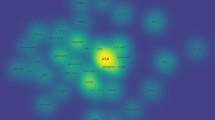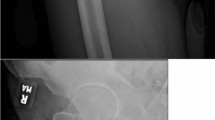Abstract
Introduction
Artificial intelligence (AI) is transforming medicine through techniques like machine learning and deep learning. AI aids diagnosis, enhances patient care, and streamlines healthcare systems. Despite potential benefits, challenges of bias and trust must be managed. Tonsillitis is a common otolaryngological condition with economic implications. The study assesses ChatGPT’s utility in the diagnosis management of bacterial tonsillitis, highlighting its potential for patient-professional interaction.
Methods
2 methods evaluated ChatGPT 3.5 diagnostic ability for tonsillitis: patient-written cases and specialist-created cases. The scenarios involved real patients and fictional cases, assessed by 15 otolaryngologists and 5 pediatricians. Variables included diagnosis accuracy, recommendations quality, and message count.
Results
A total of 35 conversations were conducted. ChatGPT achieved accurate diagnoses in 100% of cases, with an average of 3.7 ± 1.1 chat entries for diagnosis. No significant difference existed between professional and patient scenarios (p = 0.977). Recommendations were categorized: appropriate (48.57%), incomplete (45.71%), inappropriate (5.71%), with no significant intergroup difference (p = 0.196). ChatGPT consistently advised consulting a doctor and exhibited expertise in guiding medical consultations.
Conclusion
ChatGPT demonstrates promise in providing medical insights and general advice. Its diagnostic accuracy for tonsillitis is notable, but it relies on static data and lacks individual history assessment. ChatGPT shows potential for diagnostics in simpler cases like tonsillitis, but accuracy for complex conditions needs refinement. Further research is needed for validation and broader application.

Similar content being viewed by others
Data availability
No new data were created.
References
Busby D, Grauer R, Pandav K, et al. Applications of artificial intelligence in prostate cancer histopathology. Urol Oncol S. 2023. https://doi.org/10.1016/j.urolonc.2022.12.002. 1078-1439(22)00487–2.
Krentzel D, Shorte SL, Zimmer C. Deep learning in image-based phenotypic drug discovery. Trends Cell Biol S. 2023. https://doi.org/10.1016/j.tcb.2022.11.011. 0962-8924(22)00262–8.
Chiesa-Estomba CM, Sistiaga-Suarez JA, González-García JÁ, et al. Artificial Neural Network as a Tool to predict facial nerve palsy in parotid gland surgery for Benign tumors. Med Sci Basel Switz. 2020;8:42. https://doi.org/10.3390/medsci8040042.
Zhang J, Wu J, Qiu Y, et al. Intelligent speech technologies for transcription, disease diagnosis, and medical equipment interactive control in smart hospitals: a review. Comput Biol Med. 2023;153:106517. https://doi.org/10.1016/j.compbiomed.2022.106517.
Lechien JR, Briganti G, Vaira LA. Accuracy of ChatGPT-3.5 and – 4 in providing scientific references in otolaryngology–head and neck surgery. Eur Arch Otorhinolaryngol. 2024;281:2159–65. https://doi.org/10.1007/s00405-023-08441-8.
McMahon GT. The risks and challenges of Artificial Intelligence in Endocrinology. J Clin Endocrinol Metab. 2024;dgae017https://doi.org/2024031218494853500.
Lechien JR. Generative artificial intelligence in otolaryngology–head and neck surgery editorial: be an actor of the future or follower. Eur Arch Otorhinolaryngol. 2024;281:2051–3. https://doi.org/10.1007/s00405-024-08579-z.
Tayebi Arasteh S, Ziller A, Kuhl C, et al. Preserving fairness and diagnostic accuracy in private large-scale AI models for medical imaging. Commun Med. 2024;4:46. https://doi.org/10.1038/s43856-024-00462-6.
Hakanen O, Tolvi M, Torkki P. Cost analysis of face-to-face visits, virtual visits, and a digital care pathway in the treatment of tonsillitis patients. Am J Otolaryngol. 2023;44:103868. https://doi.org/10.1016/j.amjoto.2023.103868.
Windfuhr JP, Toepfner N, Steffen G, et al. Clinical practice guideline: tonsillitis I. Diagnostics and nonsurgical management. Eur Arch Otorhinolaryngol. 2016;273:973–87. https://doi.org/10.1007/s00405-015-3872-6.
(2022) OpenAI, editor. https://openai.com/blog/chatgpt/. Accessed 15 Jan 2023.
Chiesa-Estomba CM, Lechien JR, Vaira LA, et al. Exploring the potential of Chat-GPT as a supportive tool for sialendoscopy clinical decision making and patient information support. Eur Arch Otorhinolaryngol. 2023. https://doi.org/10.1007/s00405-023-08104-8.
ChatGPT. https://chat.openai.com. Accessed 15 Jan 2023.
jamovi - open. statistical software for the desktop and cloud. https://www.jamovi.org/. Accessed 15 Jan 2023.
Radley-Gardner O, Beale H, Zimmermann R. Fundamental texts on European private law. Hart Publishing; 2016.
Parikh RB, Teeple S, Navathe AS. Addressing Bias in Artificial Intelligence in Health Care. JAMA. 2019;322:2377–8. https://doi.org/10.1001/jama.2019.18058.
Hulsen T. Literature analysis of artificial intelligence in biomedicine. Ann Transl Med. 2022;10:1284. https://doi.org/10.21037/atm-2022-50.
Ronen J, Hayat S, Akalin A. Evaluation of colorectal cancer subtypes and cell lines using deep learning. Life Sci Alliance. 2019;2:e201900517. https://doi.org/10.26508/lsa.201900517.
Chen H, Engkvist O, Wang Y, et al. The rise of deep learning in drug discovery. Drug Discov Today. 2018;23:1241–50. https://doi.org/10.1016/j.drudis.2018.01.039.
Briganti G, Le Moine O. Artificial Intelligence in Medicine: today and tomorrow. Front Med. 2020;7:27. https://doi.org/10.3389/fmed.2020.00027.
Orth M, Averina M, Chatzipanagiotou S, et al. Opinion: redefining the role of the physician in laboratory medicine in the context of emerging technologies, personalised medicine and patient autonomy (‘4P medicine’). J Clin Pathol. 2019;72:191–7. https://doi.org/10.1136/jclinpath-2017-204734.
Funding
This research has not received any form of funding.
Author information
Authors and Affiliations
Contributions
Conceptualization, MMY & LGT; methodology, MMY & LGT; formal analysis, MMY & LGT; investigation, MMY & LGT; writing?original draft preparation, MMY & LGT; writing?review and editing, JRL, CMCE, FA, AMS, LAV, AM. All authors have read and agreed to the published version of the manuscript.
Corresponding author
Ethics declarations
Conflicts of interest/Competing interests
The authors declare that they have no conflicts of interest.
Ethics
All patients received and signed an informed consent to participate in the study.
Additional information
Publisher’s Note
Springer Nature remains neutral with regard to jurisdictional claims in published maps and institutional affiliations.
Electronic supplementary material
Below is the link to the electronic supplementary material.
Rights and permissions
Springer Nature or its licensor (e.g. a society or other partner) holds exclusive rights to this article under a publishing agreement with the author(s) or other rightsholder(s); author self-archiving of the accepted manuscript version of this article is solely governed by the terms of such publishing agreement and applicable law.
About this article
Cite this article
Mayo-Yáñez, M., González-Torres, L., Saibene, A. et al. Application of ChatGPT as a support tool in the diagnosis and management of acute bacterial tonsillitis. Health Technol. (2024). https://doi.org/10.1007/s12553-024-00858-3
Received:
Accepted:
Published:
DOI: https://doi.org/10.1007/s12553-024-00858-3




